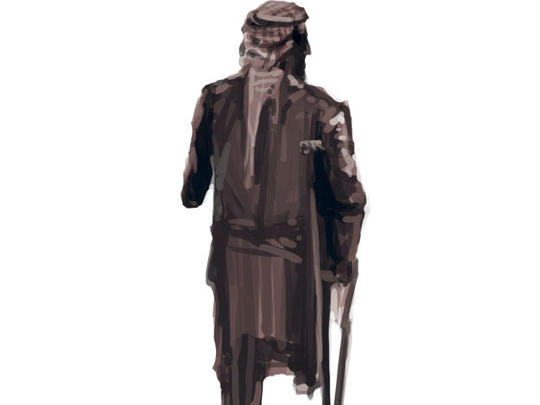
Egyptians eagerly took their cue from the grassroots revolution of neighbouring Tunisia and succeeded in toppling their long-time president Hosni Mubarak. But the topic of this column traverses a much longer timeframe and looks at a large part of Egypt that has been neglected.
The Al Alamein Desert is a vast expanse of land; a mirage that disguises the claws left from the Second World War — a land infested with millions of landmines.
In 1942, Egypt found itself at the centre of one of the most catastrophic clashes of that decade — the battle of Al Alamein. The incident was one of the Second World War's many tragedies, but few have persisted as this one has today.
Between German and British commanders Erwin Rommel and Bernard Montgomery, European and Middle Eastern blood soaked this parched corner of the Saharan desert. Rommel was defeated; he retreated and left those sands over 60 years ago but the landmines, bombs and mortars still sleep under this large stretch of desert, 150 miles west of Cairo.
Attempting to find the whereabouts of the landmines is both a tedious and incredibly difficult process, as they are buried deep in the sand.
I find myself asking why the bedouins have to suffer the consequences of history. Generations of Al Alamein bedouins, having never witnessed troubles of the 1940s, pay a price to remain on their rightful lands and face atrocious ongoing suffering. Countless children have lost limbs playing in the desert sands. Fathers are kept from supporting their families as a result of losing legs, their sight and in many case their lives, to landmines. They lament the lack of government support and compensation.
According to Landmine Monitor, a report published by the largest anti-landmine initiative, the total number of landmine casualties in Egypt isn't easy to identify. In February 1999, it was reported that landmines had claimed 8,313 victims (696 killed and 7,617 injured).
More recently, 2009 figures as tracked by Land Mine Monitor number 41 casualties, around half of which resulted in fatalities and included mostly men and children. These are the people for whom bloodshed did not end at the battle of Al Alamein.
Misplaced priorities
Shockingly, the Egyptian government has refrained from joining the 156 countries to sign the Mine Ban or Ottawa Treaty. They were far too busy dwelling on the paranoid strain in Egypt's politics that runs deep.
It is estimated that Egypt's Western Desert is home to 16 million pieces of unexploded ordinance. About 10 per cent of this stretch of land is rendered useless for cultivation as a result of landmines, impacting the livelihood of the Bedouins who rely largely on agricultural incomes.
A more recent turn of events suggests that the Western Desert may potentially be home to significant oil and gas reserves. In 2009 the government did clear 130 square metres of land from mines, however this remains a fraction of the total 2,800 square metres of land that poses an ongoing risk.
Innovative methods in landmine clearance have been recently developed. One particularly successful international organisation known as APOPO has been locating and removing landmines with the help of trained sniffer rodents.
The initiative, based on thorough research, follows a coordinated strategy that brings together some of the best experts in the field of behavioural research, animal training and environmental chemistry.
The African Giant Pouched Rat has a very acute sense of smell, is easy to breed and maintain as well as being relatively easy to transport.
Consequently, APOPO has attracted many acclaimed partners including the Schwab Foundation for Social Entrepreneurship and Antwerp University. Locating landmines is a complex process and so considerable efforts are put into training the rats to carry out the correct procedure.
APOPO has been operating in Mozambique since 2003 delivering a low cost, efficient mine detection solution using mostly local resources. I stress on introducing an affordable solution, as given Egypt's economic standing and its dependence on foreign aid, a costly solution is likely to encounter resistance.
The APOPO approach tackles the landmine problem without relying on either foreign aid or donor support.
If Egypt can feel fearful about its somewhat unpredictable current political status, it can appear dysfunctional to its bedouin inhabitants who live in the Al Alamein desert. If they allowed their justifiable fears to propel them into useful action, they would take two steps.
Urge Egypt to put a substantial budget aside for thoroughly studying the landmine issue. Second, seek solutions such as those proven to work like APOPO, where cost is not a deterrent.
The Egyptian bedouins, having lost the most, will likely feel a sense of relief. But I can only come away with the passionately held belief that these desert people deserve far better.
Muna Al Gurg is a director at the Easa Saleh Al Gurg Group and vice chairperson of the Young Arab Leaders.












